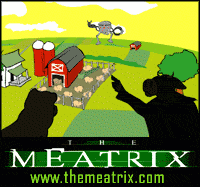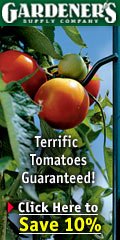Home
 Reading Room>
Reading Room>
 Yard Waste Management
Yard Waste Management
Compost: What Is It and What's It To You
Q. Is compost a peat?
A. No. Peat is harvested from bogs and dried. Peat is formed over long periods of time by the decomposition of plant materials - - into a carbonaceous form. Peat is a non-renewable, limited resource material, used mainly by the nursery industry as a soilless potting medium.
| MATURE COMPOST IS used in place of peat. It gives plants an advantage in increased nutrients and water availability, and reduced disease pressures. |
|
|
Q. Is compost a mulch?
A. No and Yes. Mulch can be either an inorganic or organic ground cover. Mulch can be pebbles, straw, shredded paper, bark, wood-chips, plastic, etc., that helps to retain moisture. Compost can be used as a high quality mulch, especially around new transplants.
| MATURE COMPOST CAN BE used as a mulch. Its slow release of nutrients to the soil gives transplants increased protection and nutrients, and water availability near the roots. |
|
|
Q. Is compost a soil?
A. No. Soil is the uppermost layer of the earth. Soils are composed of various proportions of sand, silt, clay and small amounts of organic matter.
| MATURE COMPOST IS a complex organic material that has been transformed into a stable humus by microorganisms. |
|
|
Q. Is compost a chemical fertilizer?
A. No. Chemical fertilizers are inorganic compounds, composed of specific proportions of nitrogen, phosphorus, potassium (and sometimes other nutrients), that are soluble and readily plant-available. Commercial fertilizer contains no organic matter.
| MATURE COMPOST IS, in part, an organic mixture of plant nutrients that are released slowly at a rate that is compatible with uptake by plant roots. |
|
|
Q. Is compost a manure?
A. No. Manure is animal waste often mixed with bedding or sludge, and containing nutrients, weed seeds, and potential disease organisms. Raw or partially processed manure is not stable and can release nutrients (e.g. nitrogen, phosphorus) at less predictable rates than compost.
| MATURE COMPOST CAN BE produced from manure feedstocks and combined with bedding, leaves, chips or other carbon bulking agents. Proper composting destroys weed seeds and potential disease organisms. |
|
|
Q. Then what is compost and how is it made?
A. MATURE COMPOST IS a stable humus material created by:
combining organic wastes (e.g. yard trimmings, food wastes, manures) in proper ratios into piles, rows, or vessels; controlling temperature, moisture and oxygen to achieve accelerated decomposition; and
adding bulking agents (e.g. wood chips), as necessary, to provide air space; allowing the finished material to fully stabilize and mature through a curing period.
Decomposition is performed by naturally occurring microorganisms (e.g. bacteria, fungi) that utilize the organic materials for their food and energy sources. Proper primary composting involves temperatures between 110 and 150°F, moisture content between 50 and 60%, and adequate oxygen for the microbes. It is complete when pile temperatures decline and remain below approximately 105°F. A subsequent curing period of 2 to 6 months is required for the compost to mature, after which it will not overheat or produce unpleasant odors during storage, and can be beneficially used.
|
Backyard compost bin (top) and mature compost. |
|
|
Q. Whose friend is compost ?
A. MATURE COMPOST IS the farmer's, gardener's, homeowner's, landscaper's, and nursery operator's best friend. Compost provides multiple benefits as a soil amendment, potting mix supplement, and mulch.
|
|
BENEFITS OF MATURE COMPOST
Soil / Plant Improvements
- Improves soil structure
- Improves nutrient holding capacity
- Reduces soil compaction and crusting
- Reduces fertilizer requirements
- Increases ease of cultivation
- Improves root growth and yields
- Improves water infiltration and drought tolerance
- Protects plants from disease
- Increases microbial and earthworm populations
|
Pollution Prevention / Remediation
- Prevents erosion of embankments, roadsides, and hillsides.
- Binds heavy metals in contaminated soils.
- Degrades many pesticides.
- Absorbs odors and degrades volatile organic compounds.
- Diverts organics from landfills into compost, reducing waste burden and methane production.
|
Cabbage mulched with compost. |
Author: A.H. Christian and G.K. Evanylo, Extension Specialists,
Department of Crop & Soil Environmental Sciences, Virginia Tech;
R. Green, Office of Solid Waste,
U.S. Environmental Protection Agency; Organics Recycling and Composting
Committee (ORCC) of the Virginia Recycling Association (VRA).
|





